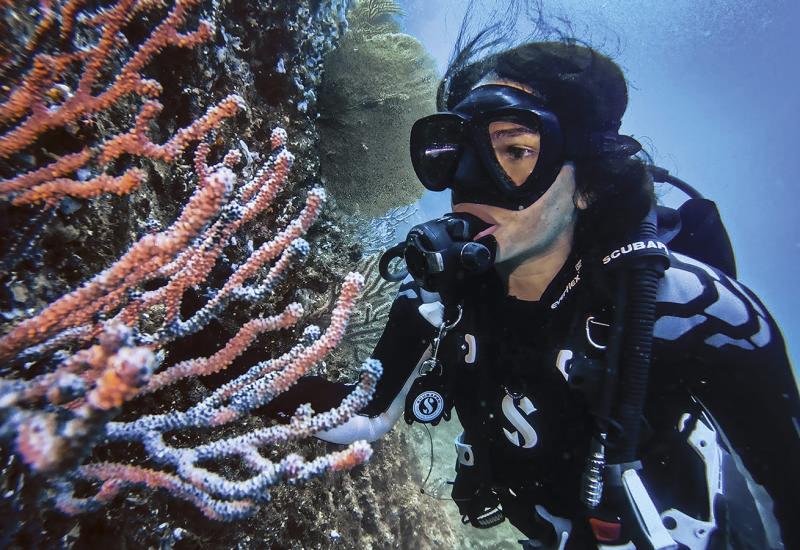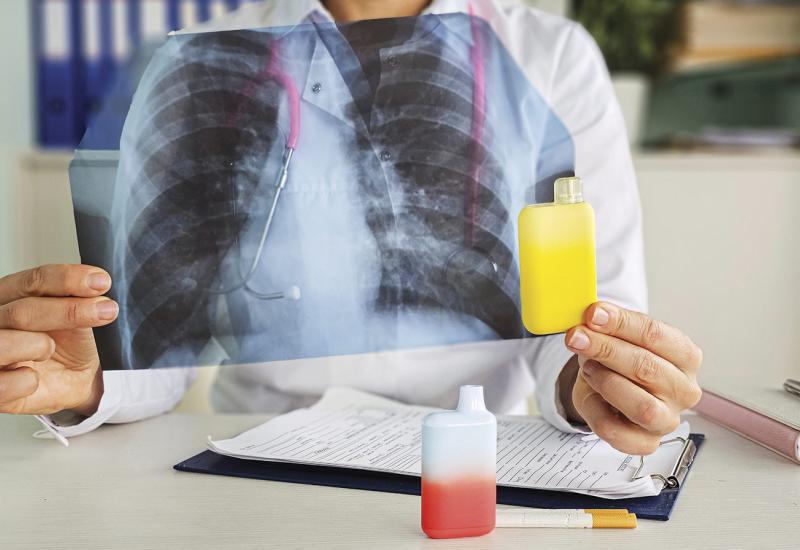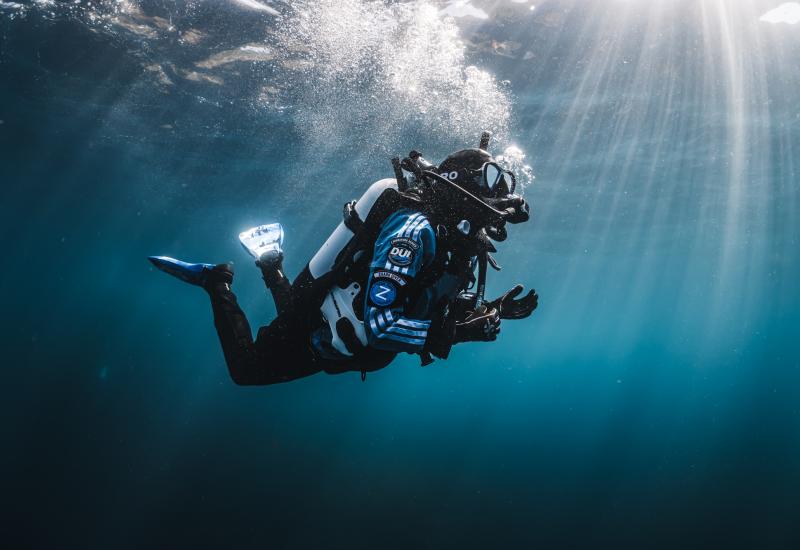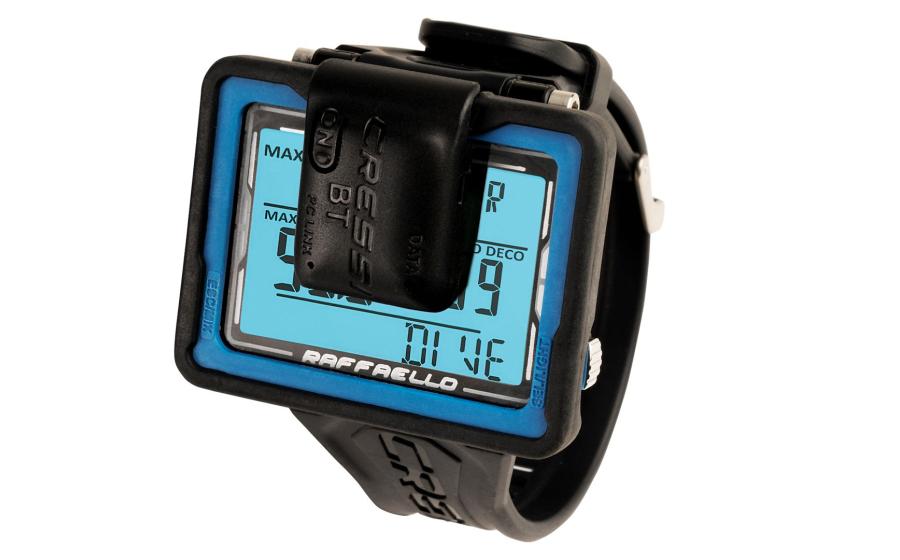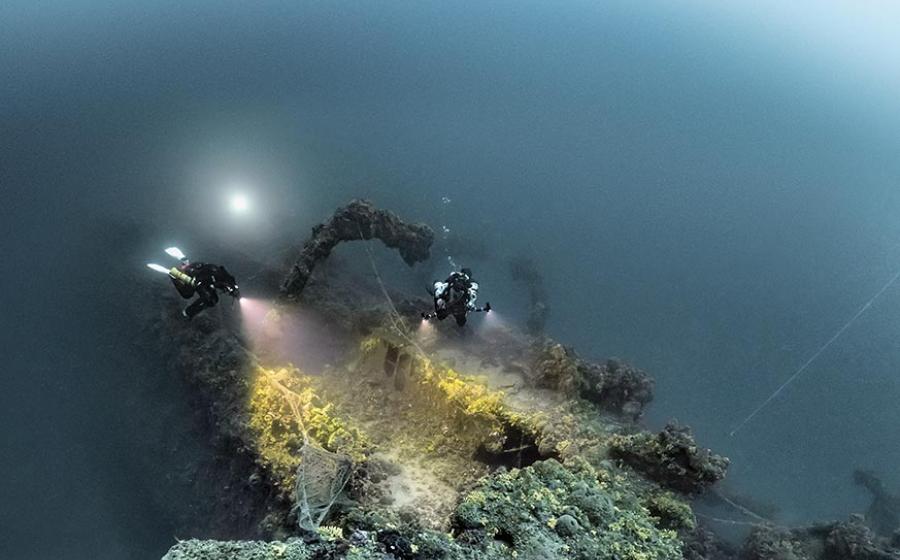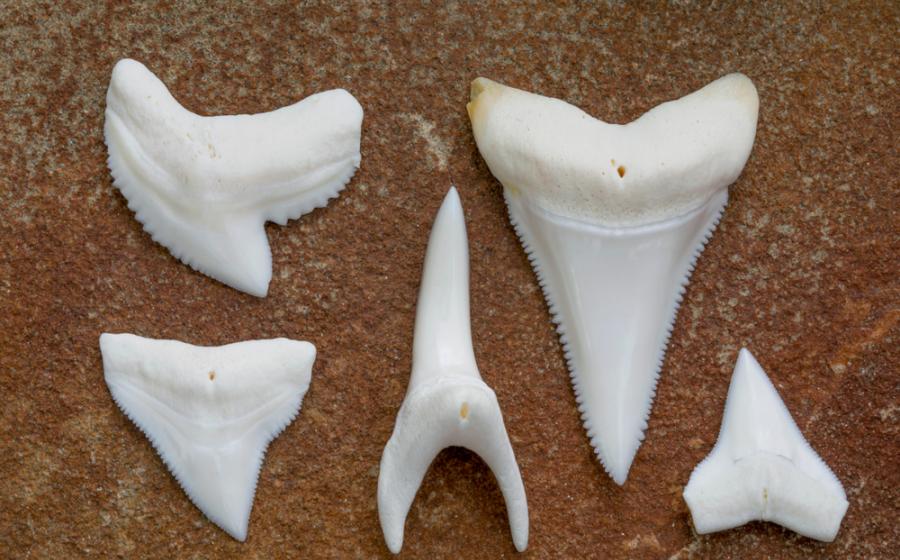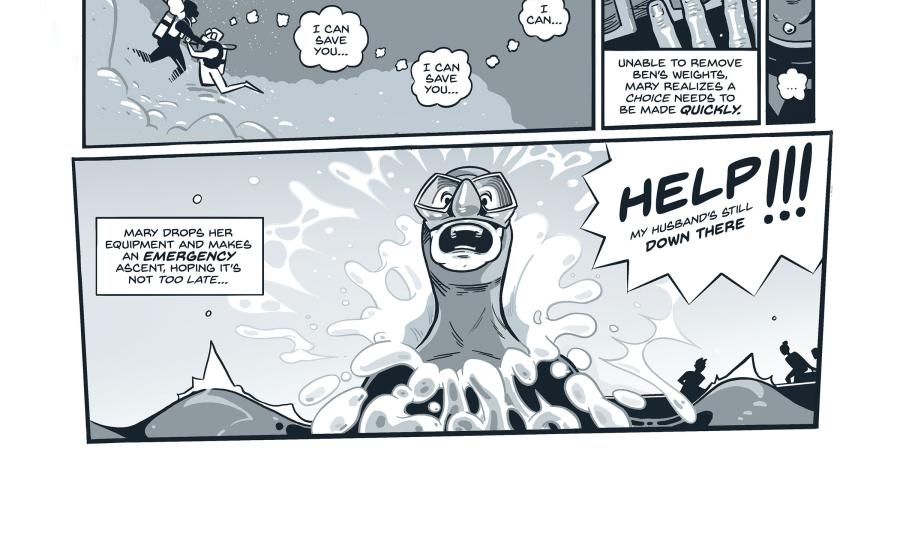Lessons for Life: Dangers of Diving With a Cold
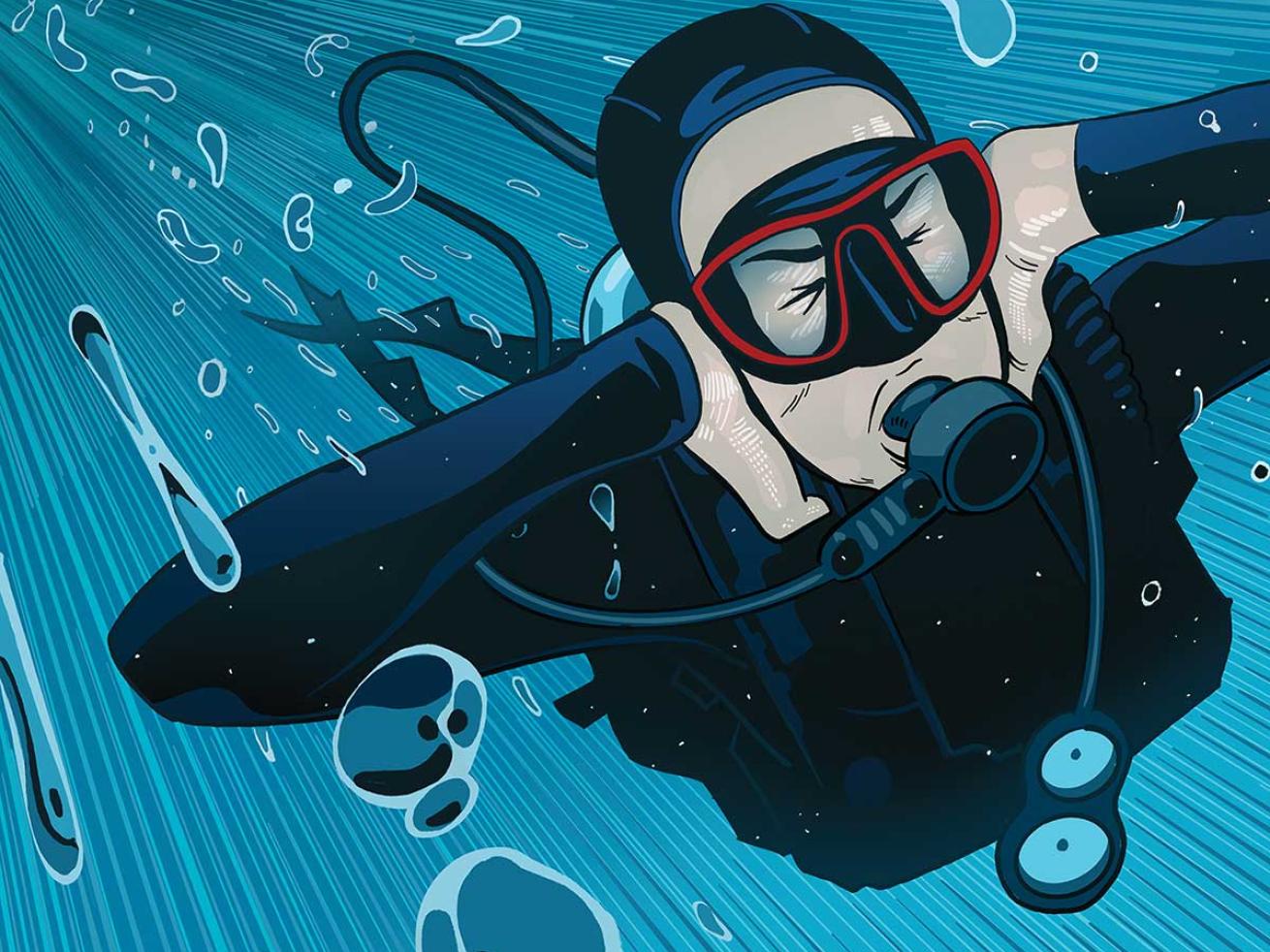
Steven P. HughesIgnoring cold symptoms can cause trouble underwater
Sheila was frustrated. She was having issues equalizing her ears. She was experiencing pain on ascent, which made things even worse. She climbed on board the boat from her second dive of the day and felt like she couldn’t catch her breath.
The Diver
Sheila was a healthy and fit 26-year-old female with no known health conditions. She was a relatively new diver, having learned to dive the previous year, and had booked a liveaboard trip with a friend. She had about 30 logged dives to her credit.
Sheila reported having a cold two days before the trip began but felt it had resolved by the time she boarded.
The Dive
On the liveaboard, Sheila and the other divers were taken to remote locations not normally accessible on day trips. They had been on the water for three days and Sheila had made multiple dives each day. Conditions were good, and everyone was having a good time, but Sheila was struggling with her ears, and each day it got worse.
The Accident
On the fourth day on the liveaboard, Sheila’s ear problems negatively affected her buoyancy control. She ended up making rapid uncontrolled ascents on both morning dives.
Within a few minutes of boarding the boat after the second dive of the day, Sheila was experiencing chest tightness and had trouble taking deep breaths. The pain began in the center of her chest and radiated to her neck.
Her buddy acted quickly and reported her problems to the boat crew. She was immediately placed on oxygen first aid, and the crew took steps to evacuate her to advanced medical care.
She didn’t have any signs of decompression illness like neurological problems or skin changes, but because she had been diving, doctors treated her with a U. S. Navy Treatment Table 6. The chest pain and tightness quickly resolved on re-compression.
Related Reading: Back in Action: Diving After An Injury
Analysis
Taking the rapid ascents into account, as well as the type of pain Sheila experienced, it is likely she had what is called mediastinal emphysema—a type of lung overexpansion injury caused by failing to exhale properly during ascent, especially rapid ones.
Air leaks from a lung and builds up between the lungs, putting pressure on them and making it difficult to breathe. If the air had moved into Sheila’s arterial circulation, it would have caused an arterial gas embolism, making things much worse.
In this case, the recompression treatment may not have been necessary. The body typically reabsorbs the air while the diver breathes oxygen. While it did relieve her symptoms, there was a chance the chamber could have caused a lung collapse (pneumothorax). But that call has to be made by a physician trained in dive medicine
The important lesson from this situation is to ensure problems like ear equalization don’t disrupt your controlled ascent or dive safety. A seemingly minor concern can lead to bigger problems.
A cold can take a week or more to fully clear, even after the obvious symptoms are gone. Repeated dives and incomplete equalization likely made Sheila’s situation worse, building up to the problems she experienced on the fourth day of diving.
Sheila should have quit diving for the day after experiencing ear problems and a rapid ascent. She could have worked to make sure she could clear her ears—even if that meant staying out of the water the rest of the trip.
Related Reading: Top Techniques to Equalize Your Ears When Diving
Lessons For Life
■ Practice ear-clearing techniques. For some, simply blowing against blocked nostrils clears their ears. If that doesn’t work for you, talk to your dive instructor about other techniques. Staying hydrated and relaxed will also help with ear clearing on descent.
■ Don’t dive with a cold. Wait until symptoms are completely resolved and you can equalize normally before diving.
■ Practice safe ascents. Making safe, controlled ascents is the best way to avoid a multitude of diving-related problems. Follow your computer, and control your buoyancy to get to the surface safely.


